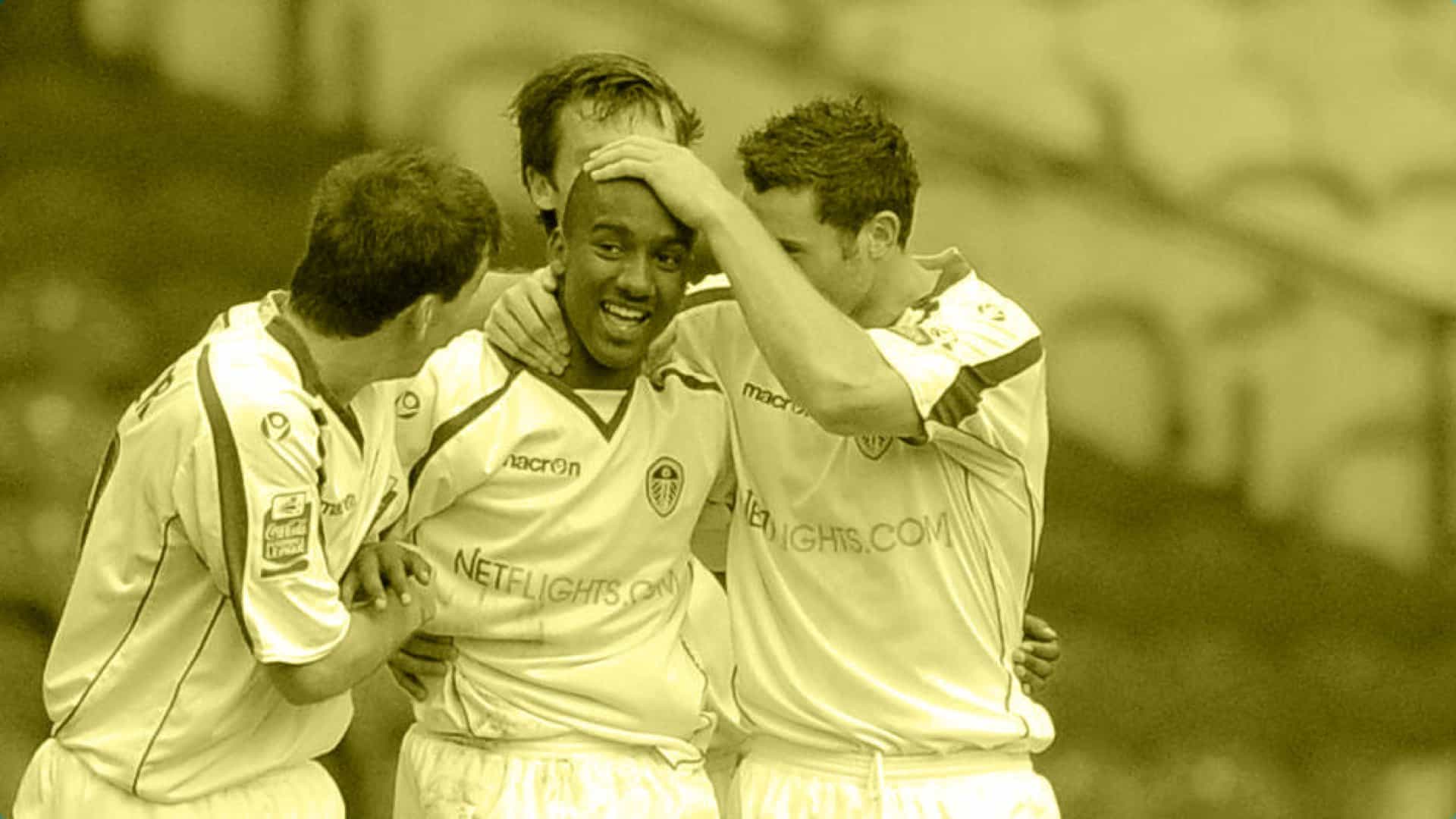Limited Time Discount! Shop NOW!

An early 1990s rave anthem might be an odd starting point for a retrospective on the career of Fabian Delph, but here we are. Last week, the brightest star to emerge from the academy of League One Leeds called time on his playing career at the relatively young age of 32. It seemed a good moment to revisit his best moments in a Leeds shirt, and a quick YouTube search turned up a grainy video, uploaded thirteen years previously.
I’m not sure exactly when, or by who, it was decided that all player montages on YouTube had to be glossy, character-free processions of goals and assists backed by boring chill-hop, but this video bucked the trend. It had, proudly and unashamedly, been assembled using free software that wouldn’t have looked out of place on Windows 95. A blue and amber star graphic proclaimed it as ‘a Dean Woodward Production’, and it was backed by the pulsing, aggressive techno rhythm of 2Unlimited’s 1993 hit ‘No Limit’. The footage was blurry and the goals didn’t sync with the music, but I loved every second of it.
Rave, techno and Eurodance aren’t everyone’s cup of tea, but when the subject of your video is a bright, inventive player with infectious enthusiasm for the game, it sort of works. Search YouTube and you’ll find Djalminha performing rainbow flicks to Scatman John and Gazza tormenting Scottish defenders to the Shamen’s ‘Ebenezer Goode’. There’s something gloriously un-cynical about a lot of the dancier stuff from the early and mid 90s. You get the feeling the artists had a lot of fun making it.
For this video in particular, it worked. Teenage Delph hurtles around the Elland Road turf like a pinball, zig-zagging around lower league behemoths while the bassline pulses, clearly intoxicated by his love of the game. For Fabian Delph, eighteen years old and already head and shoulders above League One’s level, there truly was no limit. He did what he wanted, and he did it with pride, whether it was looping the ball into the Stockport net from fully forty yards or barrelling the full length of the Brighton pitch, pursued by bewildered defenders, to smash one in from the edge of the box.
This was a time when Fabian Delph could have become anything: a livewire winger jinking past right-backs, a sinewy playmaker conjuring goals from nothing, or a midfield pitbull snapping at the heels of opponents. And he certainly became something: a two-time Premier League champion with twenty England caps. His tale is categorically not one of squandered talent or potential unfulfilled, but nonetheless its ending felt sad, and premature.
He stepped up to the Premier League, as we all knew he must, leaving behind fond memories and a newly beige-fronted East Stand, and quickly found his level there. We admired him from afar as he transferred his youthful exuberance to Aston Villa and established himself. Occasionally we’d see a flash of his Yorkshire humour, such as the occasion when he appeared in Sky’s pre-game team graphic sporting a manic, boggle-eyed grin, and it would leave us smiling, too.
After serious injury struck for the first time, Delph made a brief return to Elland Road on loan, and it wasn’t quite the same. He no longer seemed the free spirit who had delighted us by taking risks and letting his talent run free. Some of the joy had gone out of his game. But, unlike Leeds, he was still going places, and ultimately earned the Villa captaincy and international honours, before graduating to the Champions League and trophies with Manchester City.
There comes a time for all of us when life gets serious. We age. We change. A job we once loved becomes a means of paying a mortgage, and staving off rising energy bills, and feeding a family. It’s hard to say when, or if, this became the case for Delph, but, watching his first training video after joining Everton it’s striking that he never smiles once. He looked different somehow, almost careworn. I no longer recognised him as the player who lit up Elland Road with his skill and tenacity. Maybe it was the injuries, or the pressure, or the spectre of Frank Lampard on the horizon, but his final three years represented a sad decline and an almost cathartic ending.
It’s hard not to contrast Delph with Luke Ayling, just a year younger but clearly relishing every minute on the pitch despite injury setbacks. Ayling has as much chance of equalling Delph’s achievements as Dean Woodward has of winning the best director Oscar, but his joy at representing Leeds shines through every time he takes the field. For Ayling, who took a long, hard route to the top, the Premier League remains an undiscovered country. For Delph, whose prodigious talent catapulted him to the top level as a teenager, it’s merely going over old ground. By his late twenties there were no mountains left for him to climb.
I wish Fabian Delph could have remained our player for longer, and shared in our adventures. It’s a forlorn hope, because he so comprehensively outgrew us within the first few months of his career, but we’ll always wonder what could have been. He deserved every trophy he has won, but also deserved better treatment than he got from Manchester City’s malcontented fans. He was loved here, briefly, but loved nonetheless, and I’ve never seen him look so happy as he looked in that grainy video footage from a half-forgotten time.
He should look back on his career with considerable pride, and few regrets. And, although we never got to see the very best of Fabian Delph first-hand, I’m very grateful that we at least had that first, glorious season, on muddy, rain-lashed fields, when he danced like nobody was watching. ⬢
Copyright © The Square Ball Media Limited All Rights Reserved
WordPress Development By Clio Websites